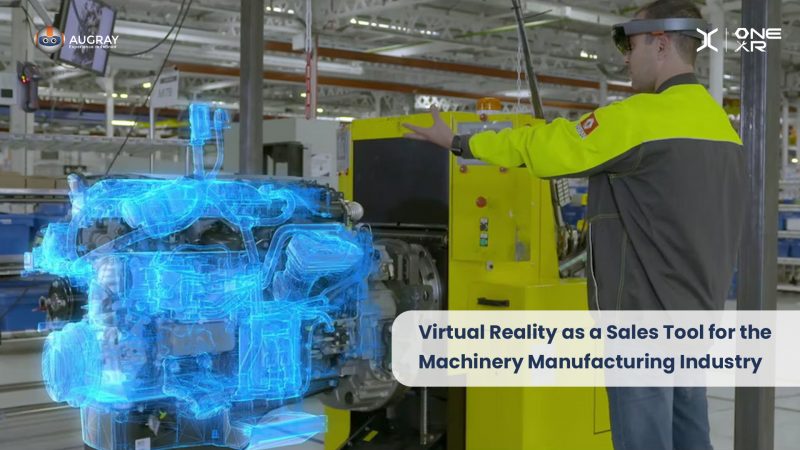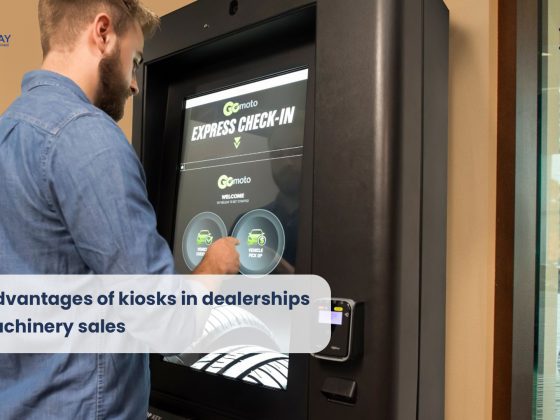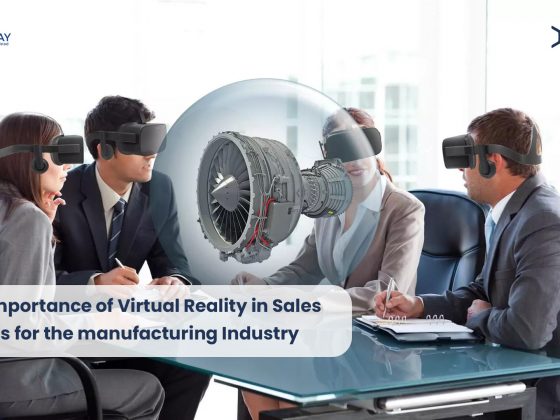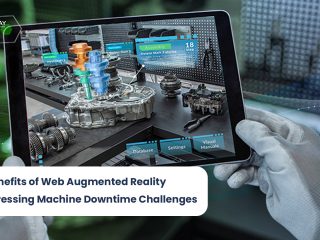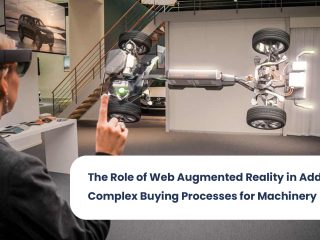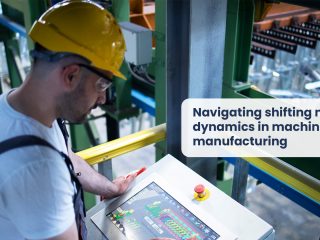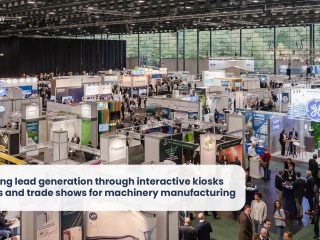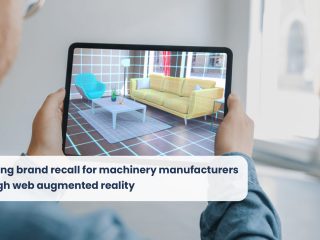Virtual Reality (VR) is a rapidly growing technology that is revolutionizing the way businesses interact with their customers. The Machinery Manufacturing Industry has been no exception to this trend, with VR proving to be an effective sales tool for companies in this sector.
In this article, we will explore the ways in which VR is being used by machinery manufacturing companies to enhance their sales process and provide customers with a more immersive and engaging experience.
Product Demonstrations
One of the primary uses of VR in the Machinery Manufacturing Industry is for product demonstrations. Companies can create virtual versions of their machinery and allow customers to interact with them in a realistic and immersive environment.
For example, Caterpillar, a leading manufacturer of construction equipment, has developed a VR training program that allows customers to learn how to operate their machinery before purchasing it.
Remote Sales Presentations
VR can also be used as a tool for remote sales presentations. This is particularly useful for companies that have a global customer base and may not be able to visit every potential customer in person. By using VR, companies can create a virtual showroom that allows customers to see and interact with their machinery from anywhere in the world.
Trade Show Exhibits
Trade shows are an important part of the Machinery Manufacturing Industry, and VR can be used to create immersive and engaging exhibits. Companies can use VR to showcase their products in a way that is more interactive and engaging than traditional displays.
For example, Volvo Construction Equipment used VR at a trade show to create a virtual quarry where customers could see their equipment in action.
Design Reviews
VR can also be used for design reviews, allowing customers to see a virtual version of a product before it is manufactured.
This can be particularly useful for complex machinery where it may be difficult to fully understand how it works based on 2D drawings. For example, Boeing has used VR to allow customers to review the design of their airplanes before they are built.
Training
Machinery manufacturing companies can also use VR for training purposes. This can be particularly useful for complex machinery where it may be difficult to provide hands-on training. By creating a virtual training environment, companies can provide employees with a safe and immersive way to learn how to operate their machinery. For example, John Deere has used VR to train employees on how to operate their tractors.
Maintenance and Repair
VR can also be used for maintenance and repair purposes. Companies can create virtual simulations of their machinery that allow technicians to practice repairs before working on the actual machine.
This can be particularly useful for complex machinery where mistakes can be costly. For example, Siemens has used VR to train technicians on how to repair wind turbines.
Customization
Machinery manufacturing companies can also use VR to allow customers to customize their products. By creating a virtual version of their machinery, companies can allow customers to see how different options and configurations will look and function. For example, Kuka Robotics has used VR to allow customers to customize their industrial robots.
Sales Training
VR can also be used for sales training, allowing sales representatives to practice their pitch in a virtual environment. By creating a virtual sales environment, companies can provide sales representatives with a safe and immersive way to practice their sales techniques. For example, Dell has used VR to train their sales representatives on how to sell their products.
Marketing Campaigns
VR can also be used for marketing campaigns, allowing companies to create immersive and engaging experiences for their customers. For example, Volvo Construction Equipment used VR to create a virtual reality game where customers could experience operating their machinery in a fun and interactive way.
Customer Engagement
Finally, VR can be used for customer engagement, allowing companies to create a more interactive and engaging relationship with their customers. By providing customers with a virtual environment where they can see and interact with the company’s products, companies can build stronger relationships with their customers.
For example, Manitowoc Cranes has used VR to create a virtual tour of their factory, allowing customers to see how their cranes are manufactured and assembled.
Virtual Reality (VR) has numerous advantages as a sales tool for the Machinery Manufacturing Industry. Some of the key advantages include:
- Enhanced Customer Experience: VR technology allows customers to have a more immersive and interactive experience when exploring machinery products. Customers can see and interact with virtual versions of machinery in a way that feels more realistic and engaging than traditional sales methods.
- Increased Efficiency: VR can be used to streamline the sales process, allowing customers to explore machinery products without the need for physical samples or in-person demonstrations. This can save time and resources for both customers and sales representatives.
- Improved Product Understanding: VR can be used to provide customers with a better understanding of machinery products, allowing them to see how the products work and how they can be customized to fit their needs. This can lead to more informed purchasing decisions and greater customer satisfaction.
- Safe and Controlled Environment: VR allows companies to create a safe and controlled environment for customers to explore machinery products. This is particularly useful for complex and potentially dangerous machinery, where physical demonstrations may be risky.
- Global Reach: VR can be used to reach a global audience, allowing companies to showcase their machinery products to customers anywhere in the world. This can expand market reach and increase sales opportunities.
- Cost-effective: VR can be a cost-effective alternative to traditional sales methods such as physical samples or in-person demonstrations. This can save costs on logistics, travel, and other expenses associated with traditional sales methods.
- Competitive Advantage: Companies that use VR as a sales tool can differentiate themselves from competitors, offering customers a more innovative and engaging sales experience. This can lead to increased customer loyalty and a stronger market position.
Overall, VR provides many advantages as a sales tool for the Machinery Manufacturing Industry. From enhancing the customer experience to improving efficiency and product understanding, companies can use VR to gain a competitive advantage and increase sales opportunities.
In conclusion, VR is a powerful sales tool for the Machinery Manufacturing Industry, allowing companies to create immersive and engaging experiences for their customers. From product demonstrations and remote sales presentations to training, maintenance and repair, customization, and marketing campaigns, there are many ways in which VR can be used to enhance the sales process. As VR technology continues to evolve, we can expect to see even more innovative uses of this technology in the Machinery Manufacturing Industry and beyond.
